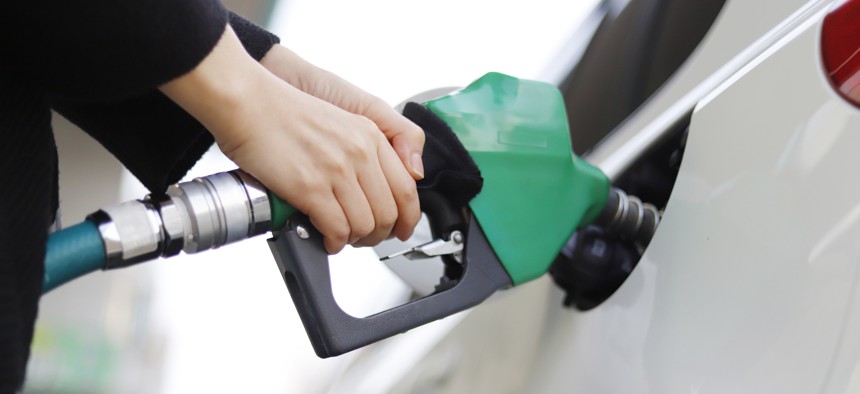A Missing Piece With State Efforts to Test Drive Mileage Taxes

gettyIMAGES.COM/RunPhoto
A federal watchdog questions why pilot programs for an alternative to the gas tax haven't been evaluated on whether they could be expanded nationwide.
More than a dozen states since 2015 have been studying whether it’s possible to replace fuel taxes with mileage taxes to fund road upkeep, but those alternatives haven’t been evaluated on one key question: whether their systems could eventually be used nationwide.
That’s the conclusion of the U.S. Government Accountability Office, which audits and evaluates programs, in a report released Monday.
The finding stings, because finding a national replacement for per-gallon fuel taxes was the main reason Congress asked states to participate in the pilot programs in the first place.
Officials are searching for long-term ways to pay for the federal highway program because federal fuel taxes have not brought in enough money to fund it. Congress last raised the per-gallon fuel tax rates in 1993, and the 18.4 cents per gallon has not kept up with inflation. To have the same buying power as it did in 1993, the federal gas tax would have to increase to 44 cents a gallon.
Originally, fuel taxes brought in so much money to the federal treasury that they were walled off into a separate Highway Trust Fund, to prevent Congress from using the money for other purposes. But by 2009, the trust fund ran out of money.
Congress had to somehow keep highway spending going. But lawmakers balked at raising the fuel tax rates. Instead, they’ve scraped together money from other parts of the federal budget to keep the Highway Trust Fund solvent.
Meanwhile, states largely avoided the problem by hiking gas tax rates but they know there are other problems with gas taxes. Vehicles are becoming more fuel efficient, and many automakers are preparing to switch their fleets completely to electric vehicles.
Many states, starting with Oregon, have tried to develop new ways for paying for road upkeep that could be as effective and simple as the gas tax. The federal government encouraged those efforts by creating pilot programs in 2015. Thirteen states took part in those studies individually, and two multistate networks in the West and East did as well.
The states took many different approaches to testing systems that would tax people based on the miles they drove. Some used GPS receivers to track mileage, others used wireless devices that communicated with a vehicle’s odometer and still others relied on prepaid mileage windshield stickers. Missouri and New Hampshire studied the possibility of making up lost gas tax revenue from electric vehicles, hybrids and fuel-efficient vehicles with higher registration fees. Wyoming’s project never got off the ground, because officials there are waiting for legislative approval first.
The states that took part in the program were California, Delaware, Hawaii, Kansas, Minnesota, Missouri, New Hampshire, Ohio, Oregon, Texas, Utah, Washington and Wyoming.
Where Is the Scalability Criteria?
The GAO praised many aspects of that work, but it questioned why the Federal Highway Administration, which oversees the efforts, hadn’t developed a way to tell if those approaches would work at a very large scale.
“Without scalability criteria, [the Federal Highway Administration] will not be able to assess the potential of mileage fee systems beyond the pilot states nor provide information or recommendations, if any, for congressional consideration of these approaches to address the current insolvency of the Highway Trust Fund—an issue GAO has had on its high-risk list for over a decade,” the GAO warned.
FHWA officials told the auditors they didn’t have the money to carry out that kind of evaluation, and they didn’t have the authority to create a national policy on replacing gas taxes. But that explanation did not sway the GAO.
“As the federal agency responsible for administering the program, for evaluating the state pilot projects, and for ensuring that the activities carried out using the program funding meet program objectives, FHWA is in the best position to provide information to Congress regarding the adoption and implementation of any national mileage fee system policy,” the auditors wrote.
In a formal response to the audit, the FHWA agreed to evaluate future mileage fee pilot programs for their ability to be rolled out nationally.
“The ability to meaningfully assess scalability has been limited to date by the availability of results from only a limited number of small-scale pilots,” Philip McNamara, the FHWA’s assistant secretary for administration, wrote. “As pilots continue to progress, additional information should become available to support an assessment.”
NEXT STORY: How agencies are benefitting from AIOps






